Best Hardware Wallets of 2024

Looking to secure your digital assets? With the rise in crypto popularity, finding the best hardware wallets in 2024 has become crucial for anyone serious about protecting their investments. Hardware wallets are like personal safes for your cryptocurrencies, keeping them safe from online threats. In this guide, we’ll explore the top crypto wallets of 2024, what makes them stand out, and why you need one to keep your Bitcoin, Ethereum, and other digital currencies secure.
Why You Need a Hardware Wallet in 2024
Cyber threats are on the rise, and keeping your crypto on exchanges or software wallets is like playing with fire. Imagine leaving your cash out in the open—risky, right? That’s why the best hardware wallets in 2024 are designed to keep your private keys offline, safe from prying eyes and hackers. These wallets offer an extra layer of protection compared to software wallets, which are vulnerable to malware, phishing, and other cyber attacks.
Hardware wallets are the go-to choice for anyone looking to secure cryptocurrency. By keeping your private keys offline, these wallets significantly reduce the risk of theft, making them the best option for storing Bitcoin, Ethereum, and other altcoins.
Key Features to Look for in a Hardware Wallet
Choosing the right crypto hardware wallet means paying attention to features that ensure your investments are secure and easy to manage. Here’s what to consider:
- Security Features: Opt for wallets with top-notch security like secure elements, PIN codes, and passphrase support. Your priority should always be safeguarding your assets from potential threats.
- User Experience: A hardware wallet should make managing your crypto easy, not a chore. Look for user-friendly interfaces, intuitive apps, and straightforward setup processes.
- Compatibility: Ensure the wallet supports the types of cryptocurrencies you own. The best Bitcoin hardware wallets will also support other major coins like Ethereum and a host of altcoins.
- Backup and Recovery Options: What if you lose your wallet? Good hardware wallets come with reliable backup and recovery options, usually involving a recovery seed—your key to restoring access to your funds.
Top Hardware Wallets of 2024
Now, let’s dive into the best hardware wallets of 2024. From the Ledger Nano X to the CoolWallet Pro, these are the top crypto wallets that combine security, ease of use, and broad compatibility.
1. Ledger Nano X: The Best Bitcoin Hardware Wallet
The Ledger Nano X is a powerhouse in the world of hardware wallets. Known for its sleek design and robust security features, it’s perfect for anyone serious about protecting their crypto investments.
Key Features:
- Bluetooth connectivity for mobile access
- Secure element chip for maximum security
- Supports over 1,800 cryptocurrencies, including Bitcoin and Ethereum
Pros:
- Highly portable and easy to use on the go
- Wide range of supported coins
- Excellent security features
Cons:
- Higher price point
- Bluetooth, while convenient, is seen by some as a potential security risk
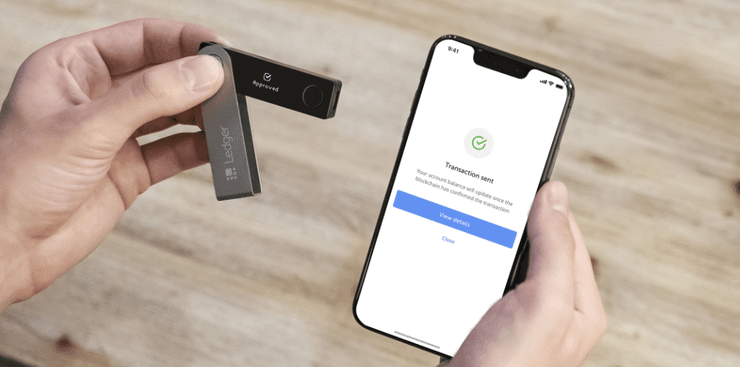
2. Trezor Model T: A Top Crypto Wallet for Advanced Security
Trezor Model T stands out with its open-source firmware and transparent security protocols, making it a favorite among tech-savvy users.
Key Features:
- Touchscreen for improved user experience
- Supports over 1,600 cryptocurrencies
- Open-source software that allows for greater transparency
Pros:
- Strong security and transparent software
- User-friendly touchscreen
- Extensive coin support
Cons:
- More expensive compared to basic models
- Touchscreen might be less responsive for some users
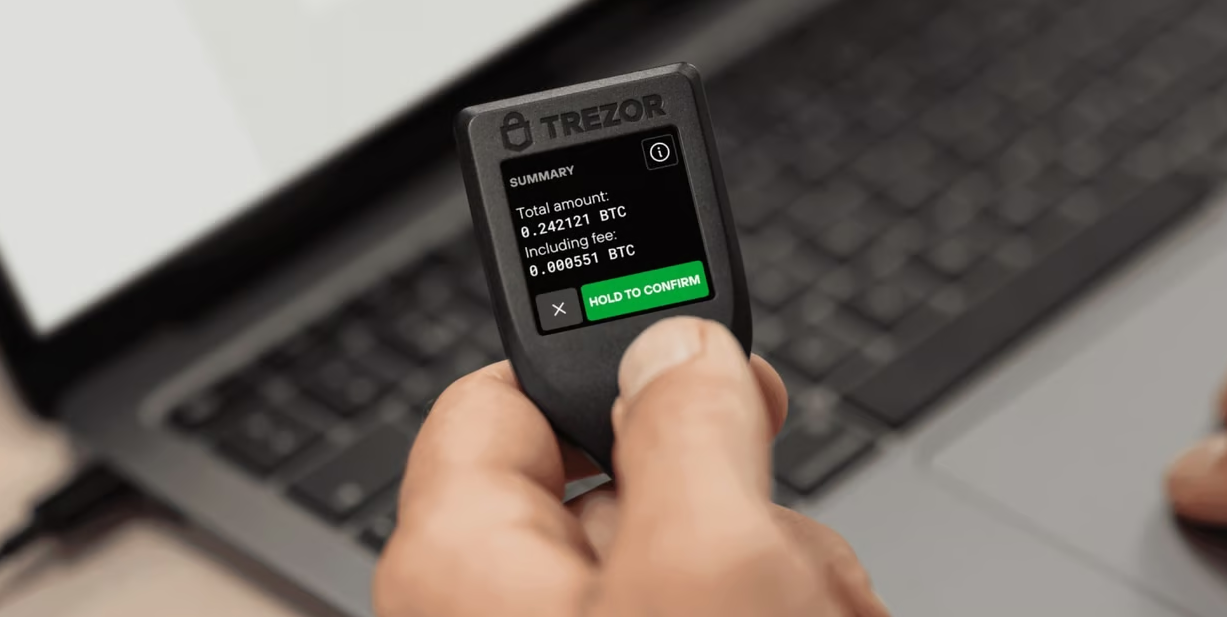
3. KeepKey: Budget-Friendly Crypto Wallet for Beginners
KeepKey offers a great balance of affordability and security, making it an excellent option for newcomers to the crypto world.
Key Features:
- Large display for easy transaction viewing
- Integrated with ShapeShift for convenient in-wallet trading
- Simple and robust design
Pros:
- Affordable and reliable
- Easy to use, especially for beginners
- Large screen for straightforward transaction confirmations
Cons:
- Bulky compared to other wallets
- Supports fewer cryptocurrencies than its top competitors
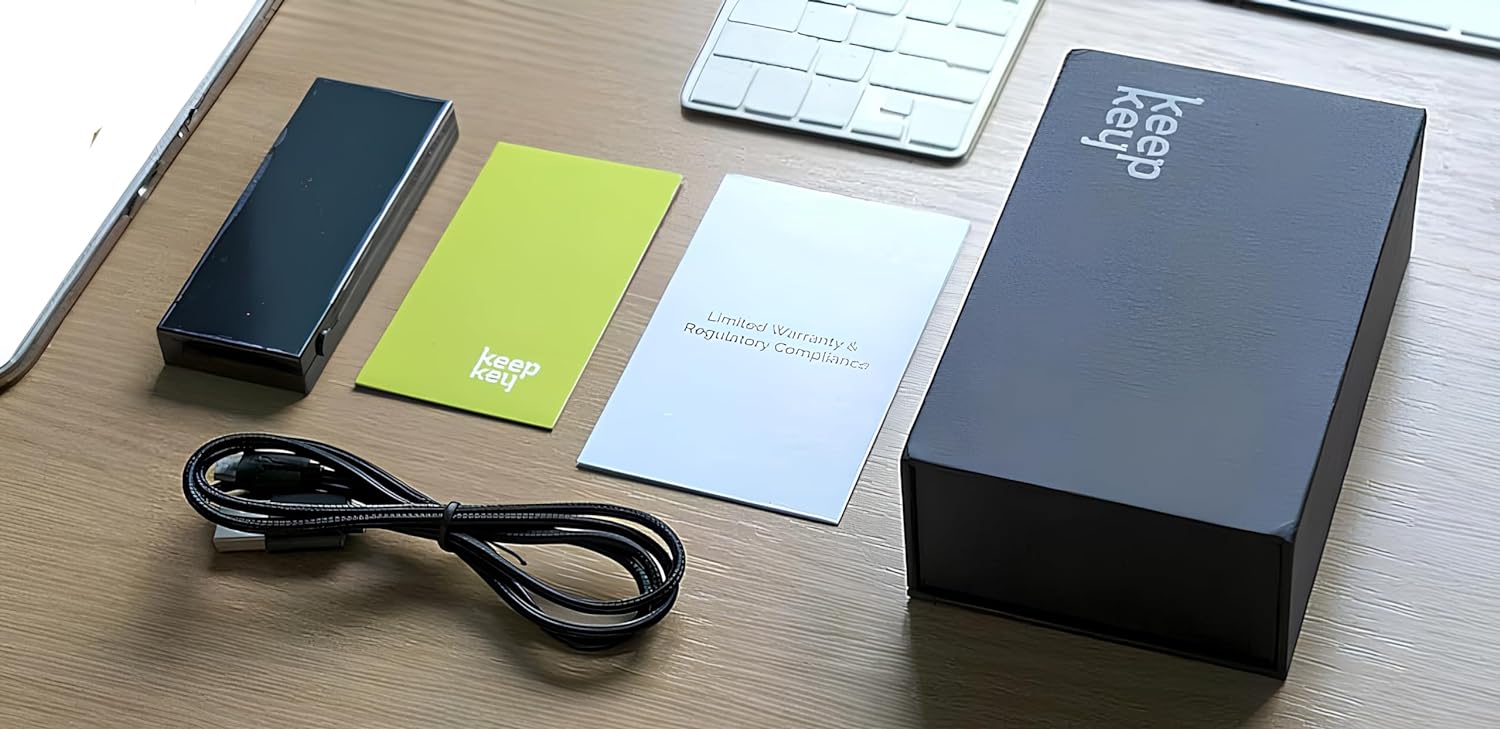
4. SafePal S1: A Secure and Affordable Hardware Wallet
SafePal S1 is designed to offer high security without breaking the bank. It’s fully air-gapped, meaning it has no Bluetooth, Wi-Fi, or USB connectivity, which drastically reduces the risk of online attacks.
Key Features:
- Air-gapped for maximum security
- Supports over 10,000 tokens, including all major cryptocurrencies
- Self-destruct feature if tampered with
Pros:
- Ultra-secure with no online connectivity
- Supports a massive range of cryptocurrencies
- Affordable compared to other high-security wallets
Cons:
- Manual updates via microSD card
- Setup process can be a bit complex for new users
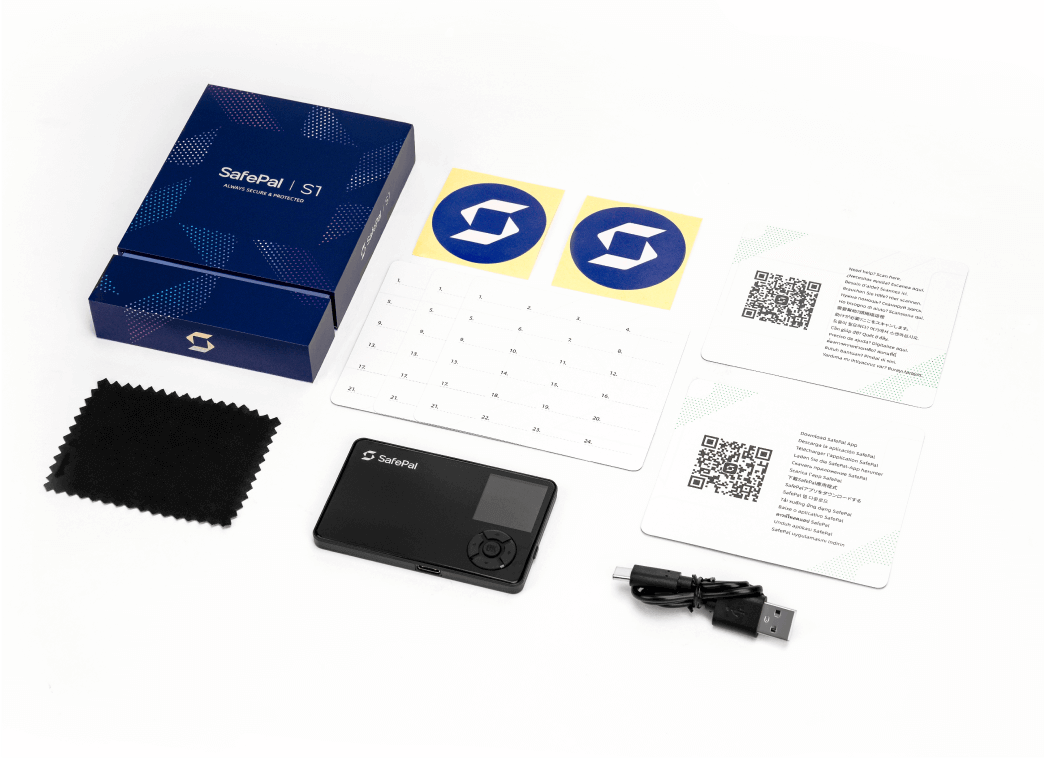
5. CoolWallet Pro: The Best Crypto Wallet for On-the-Go Users
CoolWallet Pro combines portability with security in a sleek, credit card-sized device. It’s perfect for users who need access to their crypto assets on the move.
Key Features:
- Thin, portable design like a credit card
- Bluetooth connectivity for secure mobile use
- Staking capabilities for multiple coins directly from the wallet
Pros:
- Extremely portable and discreet
- User-friendly with mobile integration
- Allows staking from the wallet, adding value for users
Cons:
- Bluetooth could be a potential vulnerability
- Small screen makes transaction verification more challenging
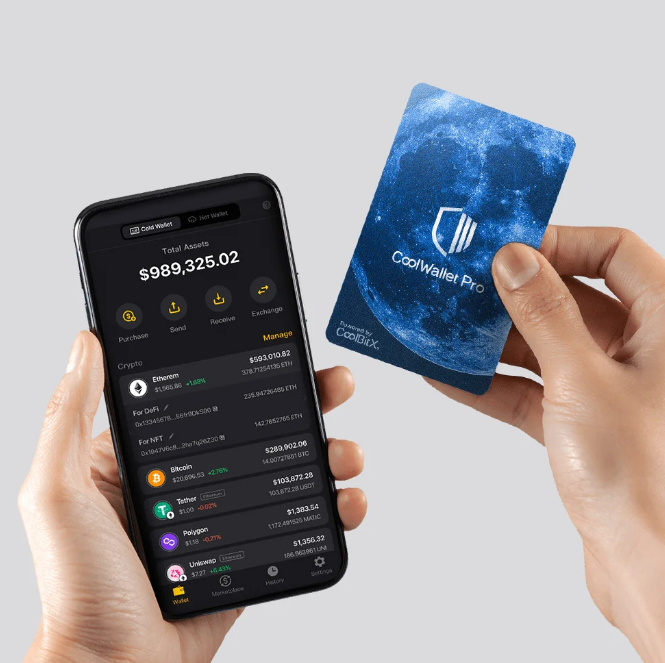
How to Choose the Right Hardware Wallet for You
Choosing the best hardware wallet depends on your specific needs. Are you looking for the best Bitcoin hardware wallet, or do you need something that supports a wider array of cryptocurrencies? Consider factors like security features, ease of use, price, and supported coins. It’s like shopping for a new car—pick the one that suits your lifestyle and needs.
Setting Up Your Crypto Hardware Wallet
Setting up your hardware wallet is easier than you might think! Most wallets come with a simple setup guide, but here are the basic steps:
- Unbox and Inspect: Ensure your wallet is new and hasn’t been tampered with.
- Connect and Set Up: Connect the wallet to your computer or smartphone and follow the setup instructions.
- Secure Your Recovery Seed: Write down your recovery seed on paper and store it securely. This is your backup in case you lose access to your wallet.
- Install Wallet Management Software: Download the wallet’s app or software, like Ledger Live or Trezor Suite, to start managing your crypto.
Common Mistakes to Avoid with Hardware Wallets
Even the best crypto wallets won’t protect you if you make common mistakes. Here’s what to avoid:
- Failing to Back Up Your Recovery Seed: Your recovery seed is crucial. Lose it, and you might lose your assets forever.
- Buying from Unverified Sources: Always purchase hardware wallets directly from the manufacturer or an authorized seller to avoid tampered devices.
- Sharing Your PIN or Recovery Seed: Keep your wallet credentials private—sharing them, even with trusted individuals, can lead to security breaches.
Keeping Your Hardware Wallet Safe
While hardware wallets are incredibly secure against digital threats, physical security is just as important. Store your wallet in a safe location and be mindful of where you carry it. Treat it like cash—always keep it close and protected.
The Future of Hardware Wallets: What to Expect
The best hardware wallets of 2024 are just the beginning. As cryptocurrency evolves, so will the technology behind these wallets. Expect to see improvements in security, ease of use, and compatibility with DeFi platforms. Staying updated with the latest wallet trends will help you keep your assets safe as the crypto landscape continues to grow.
Frequently Asked Questions About Hardware Wallets
1. What makes hardware wallets safer than software wallets?
Hardware wallets keep your private keys offline, making them immune to online hacks and malware, unlike software wallets which are connected to the internet.
2. Can I use one hardware wallet for multiple cryptocurrencies?
Yes! Most top crypto wallets, including Ledger and Trezor, support a wide range of cryptocurrencies, so you can manage all your assets in one place.
3. How difficult is it to set up a hardware wallet?
It’s easier than you think! Most hardware wallets come with a user-friendly setup process that guides you step-by-step, making it accessible even for beginners.
4. What if I lose my hardware wallet?
As long as you have your recovery seed, you can restore your funds on a new wallet. That’s why it’s essential to store your recovery seed safely.
5. Are hardware wallets worth the investment?
Absolutely! For anyone serious about securing their cryptocurrency, hardware wallets are worth every penny. They provide peace of mind by protecting your assets from online threats.


